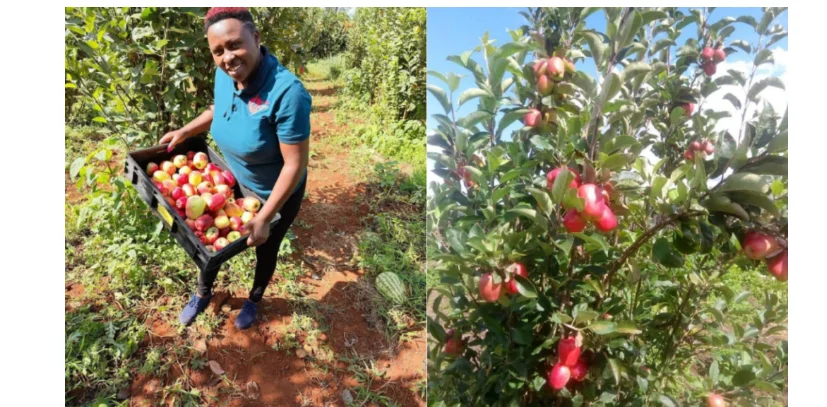Agriculture is a prominent and profitable sector globally, offering employment to over a billion people. In Kenya, many entrepreneurs have tapped into the vast opportunities in farming, with some even creating successful businesses. This essay highlights the inspiring success story of Kate Wambugu, the owner of Wambugu Apples, a thriving multimillion-dollar fruit farm in Laikipia County.
Kate’s journey into apple farming is deeply rooted in her family’s history. Her father, Peter Wambugu, began apple farming in 1985, and his remarkable success has inspired Kate to continue his legacy. She named her farm after him, paying homage to his achievements. In an interview with Business Hour KE on September 22, 2022, Kate spoke about the importance of the end product in agriculture, noting that success is determined by the yield, not the effort required.
While Kenya largely imports apples from countries like South Africa, Egypt, and the Middle East, Kate is optimistic that local farmers will soon take advantage of the opportunities in apple farming. She dispels the misconception that apple farming is labor-intensive, explaining that it requires only land, water, and manure for nurturing the trees.
Apple farming is highly profitable, Kate reveals. Once planted, apple trees begin to produce fruit in just nine months. An acre can support 600 seedlings, with each tree yielding up to 200 fruits per harvest. The longevity of apple trees is another advantage, with a potential for 100 years of harvests. Depending on the season, a farmer can earn up to Ksh10 million per acre per harvest, with the possibility of three harvests per year.
Manure plays a pivotal role in ensuring the success of apple farming. Kate emphasizes that the quality of the manure can make or break the farm. Apples from Wambugu Apples are not only sold locally but are also exported to countries such as the United Kingdom, undergoing strict quality checks by the Kenya Bureau of Standards (KEBS) before distribution.
Apple farming thrives in cold regions, particularly in areas suited for coffee and tea cultivation, with temperatures ranging from 7 to 10 degrees Celsius. While Kenya’s natural climate limits local harvests to once a year, Mr. Wambugu suggests that artificial methods can allow for two harvests annually.
While apples can adapt to various soil conditions, the best results are achieved in deep, well-drained soils with a pH between 5.5 and 6.5. In 2014, Mr. Wambugu introduced grafted Wambugu Apples, which have proven successful in both cold-humid and semi-arid regions, making it possible to harvest apples twice a year.
A key distinction of Wambugu Apples is their ability to mature in just nine months, compared to the typical two years for other apple varieties. The seedlings are certified by the Kenya Agricultural & Livestock Research Organization (KARLO) and the Kenya Plant Health Inspectorate Service (KEPHIS) and are sold for Ksh1,000 each. To ensure the quality of the apples, Wambugu carefully washes the roots before exporting.
Wambugu Apples represent a fusion of tradition and innovation in Kenya’s agricultural sector, offering a promising and sustainable business opportunity for local farmers.



